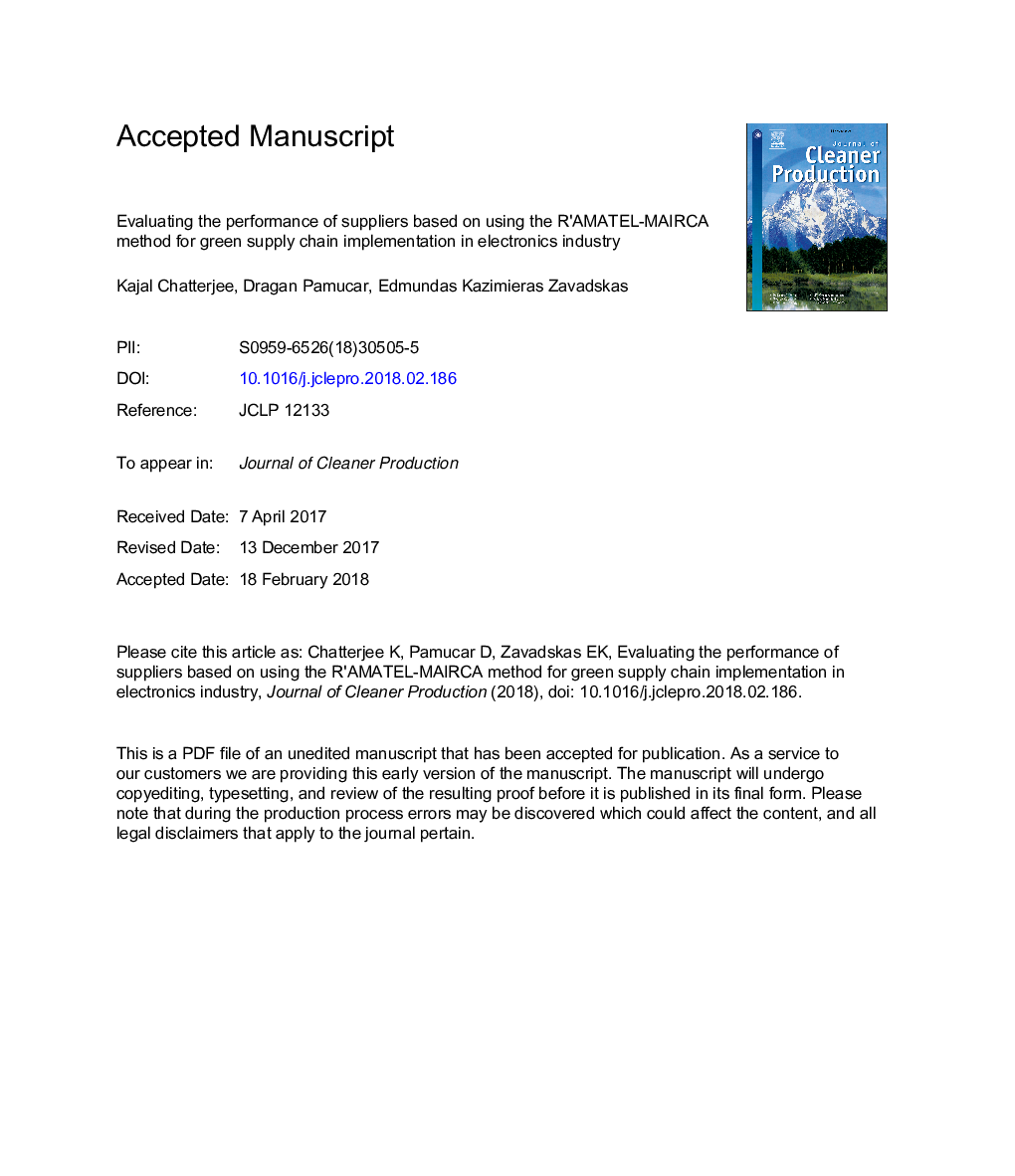| Article ID | Journal | Published Year | Pages | File Type |
|---|---|---|---|---|
| 8096623 | Journal of Cleaner Production | 2018 | 59 Pages |
Abstract
Green supply chain management (GSCM) practitioners striving to create a healthier environment should first identify the key criteria pertinent to the process of implementing the appropriate sustainable policies, particularly in the most rapidly growing electronics sector. Since the decision to adopt GSCM in electronics industry is associated with the use of a multi-dimensional approach involving a number of qualitative criteria, the paper examines GSCM based on fifteen criteria expressed in five dimensions and proposes a multi-criteria evaluation framework for selecting suitable green suppliers. In real life, the assessment of this decision is based on vague information or imprecise data of the expert's subjective judgements, including the feedback from the criteria and their interdependence. Thus to treat this uncertainty in multi-criteria decision making (MCDM) process, rough number (RN) is applied here using only the internal knowledge in the operative data available to the decision-makers. In this way objective imprecisions and uncertainties are used and there is no need to rely on models of assumptions. Instead of different external parameters in the application of RN, the structure of the given data is used. Therefore, the identified components are incorporated into a rough DEMATEL-ANP (R'AMATEL) method, combining the Decision Making Trial and Evaluation Laboratory Model (DEMATEL) and the Analytical Network Process (ANP) in a rough context. In group decision making, a rough number-based approach aggregates individual judgements and handles imprecision. The structure of the relationships between the criteria expressed in different dimensions is determined by using the rough DEMATEL (R'DAMETEL) method and building an influential network relation mapping, based on which the rough ANP (R'ANP) method is implemented to obtain the respective criteria weights. Then, the rough multi-attribute Ideal-Real Comparative Analysis (R'MAIRCA) is used to evaluate the environmental performance of suppliers for each evaluation criterion. Sensitivity analysis is performed to determine the impact of the weights of criteria and the influence of the decision maker's preferences on the final evaluation results. Applying the Spearman's rank correlation coefficient and other ranking methods, the stability of the alternative rankings based on the variation in the criteria weights is checked. The results obtained in the study show that the proposed method significantly increases the objectivity of supplier assessment in a subjective environment.
Related Topics
Physical Sciences and Engineering
Energy
Renewable Energy, Sustainability and the Environment
Authors
Kajal Chatterjee, Dragan Pamucar, Edmundas Kazimieras Zavadskas,
